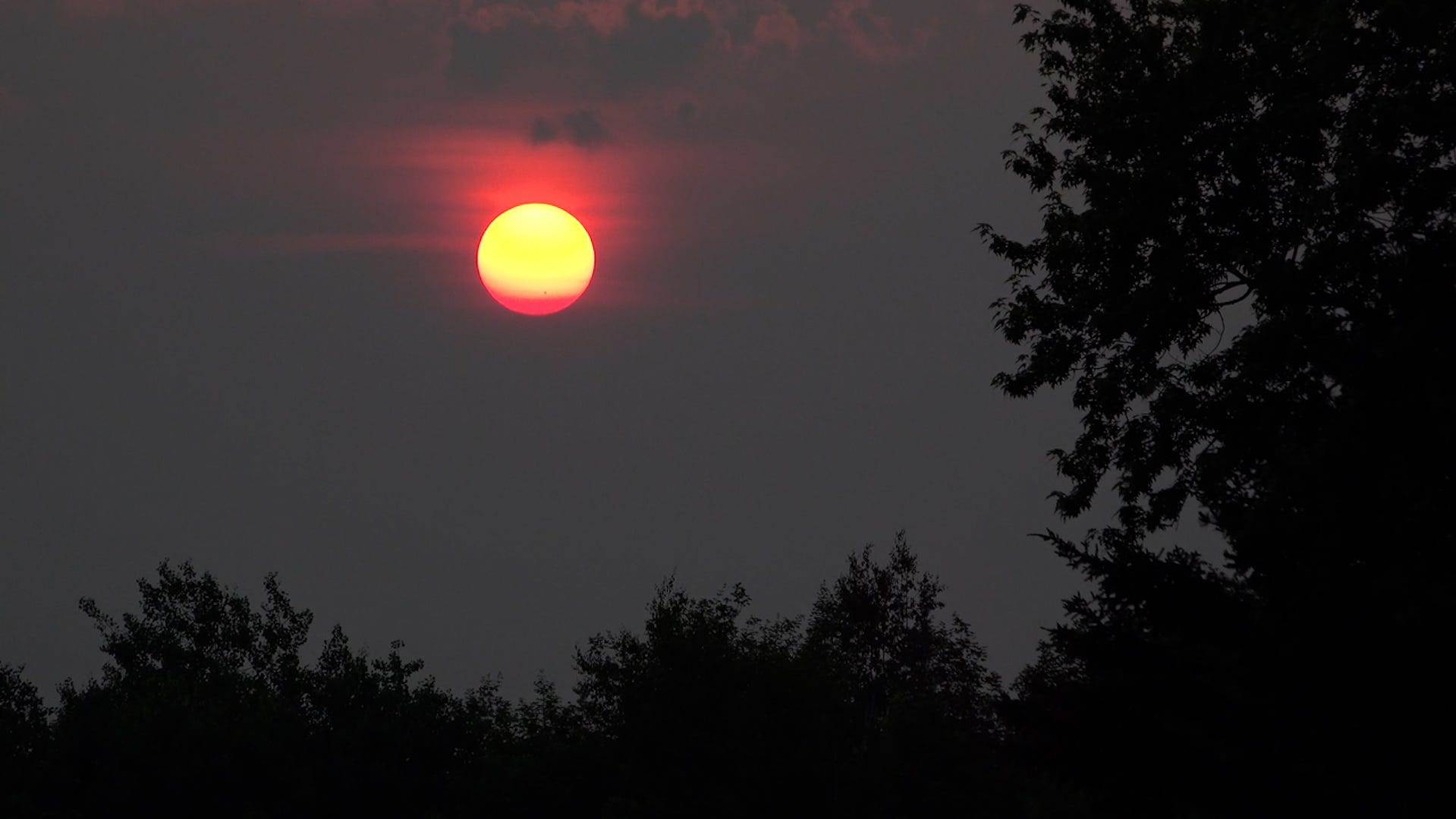
What air quality means and how it is determined: Video
Good air quality means few pollutants, while poor air quality indicates hazardous levels of pollutants like ground-level ozone and particulate matter.
- Jacksonville’s air quality grade dropped from “A” to “B” due to increased ozone smog and particle pollution, according to the American Lung Association.
- The city’s air quality was recently designated as “moderate,” with fine particulate matter being the primary pollutant.
- The EPA advises sensitive individuals to reduce outdoor activity when air quality is moderate.
Between 2024 and 2025, Jacksonville’s air quality conditions declined from “A” to “B” in the American Lung Association’s “State of the Air” report, stating that residents are being exposed to more unhealthy ozone smog and daily particle pollution.
Additionally, the city’s air quality index decreased to the “moderate” designation Thursday morning, with the primary pollutant being fine particulate matter (PM 2.5) that can enter the lungs and bloodstream.
In “moderate” air quality conditions, the U.S. Environmental Protection Agency urges those who are unusually sensitive to particle pollution to consider reducing activity levels or shortening the amount of time outdoors. EPA also warns to watch for symptoms such as coughing or shortness of breath.
Here’s what to know about the air quality in Jacksonville, Florida.
Current air pollutants in Jacksonville, Florida
Here are the current pollutants and their effect on Jacksonville’s air quality as of noon, Oct. 23, 2025:
- Fine Particulate Matter (PM 2.5) – Moderate (56): Inhalable pollutant particles with a diameter less than 2.5 micrometers that can enter the lungs and bloodstream, resulting in serious health issues.
- Particulate Matter (PM 10) – Good (44): Inhalable pollutant particles with a diameter less than 10 micrometers. Particles that are larger than 2.5 micrometers can be deposited in the airways, resulting in health issues.
- Ozone – Good (24): Ground-level ozone can aggravate existing respiratory diseases and also lead to throat irritation, headaches, and chest pain.
Current air quality conditions in Jacksonville, Florida. See Air Quality Index mapWhy is the air quality bad in Jacksonville, Florida?
The air quality in Jacksonville, Florida worsened from 2024 to 2025, according to the American Lung Association’s 26th annual “State of the Air” report. The study grades exposure to unhealthy levels of ozone pollution and particle pollution.
- Ground-level ozone pollution: In 2025, Jacksonville earned a “B” grade, ranking 165th worst of 228 with 0.3 unhealthy days a year. In 2024, the city earned an “A” and was tied for first cleanest city with zero unhealthy days.
- Short-term spikes in particle pollution: In 2025, Jacksonville earned a “B” grade, ranking 177th worst of 223 with 0.3 unhealthy days a year. In 2024, the city earned an “A” and ranked 124th worst out of 223 with zero days.
- Year-Round average level of particle pollution: In 2025, Jacksonville earned a passing grade, meaning pollution levels were below the federal standard. The city ranked ranking 134th worst out of 204. In 2024, the city earned a passing grade and ranked 84th.
Among the top causes of air pollution — proximity to wildfires, high temperatures and low humidity, and industrial and transportation emissions, Jacksonville has seen seven nearby wildfires between 1984 and 2022, is expected to experience seven hot days with “feels like” temperatures above 107 degrees this year, and is home to facilities such as the JEA Brandy Branch Generating Station, Northside Generating Station and CMC Steel Florida, according to climate risk data provider First Street.
Who is at risk when the air quality is bad?
In Duval County, out of a population of 1,030,822, here are the at-risk groups, according to the ALA:
- Under 18: 229,643
- 65 and older: 161,965
- Pediatric asthma: 14,069
- Adult asthma: 68,732
- Chronic Obstructive Pulmonary Disease (COPD): 46,700
- Lung cancer: 528
- Cardiovascular disease: 72,890
- Pregnancy: 11,445
- Poverty estimate: 146,043
- People of color: 518,317
How to protect yourself when the air quality is bad outside
On poor air quality days, here are some tips from the American Lung Association to protect yourself:
- Reduce the time you spend outdoors when the Air Quality Index (AQI) value is high. Also, reduce the intensity of outdoor activity. According to the EPA, the chances of being affected by unhealthy levels of air pollution increase the longer a person is active outdoors and the more strenuous the activity.
- If you must go outdoors, consider wearing a mask. “Unfortunately, not all masks provide adequate protection against particle pollution. Cloth or dust masks, for instance, may not effectively filter out fine particles. However, well-fitted N95 or KN95 masks have better filtration capabilities and may be beneficial on days when the AQI level of concern is high.
- Keep your indoor air healthy by keeping the windows and doors closed. Run air conditioning on the recirculate setting, use a portable HEPA air cleaner or, if it is difficult to maintain clean air in your entire house, create a clean room.